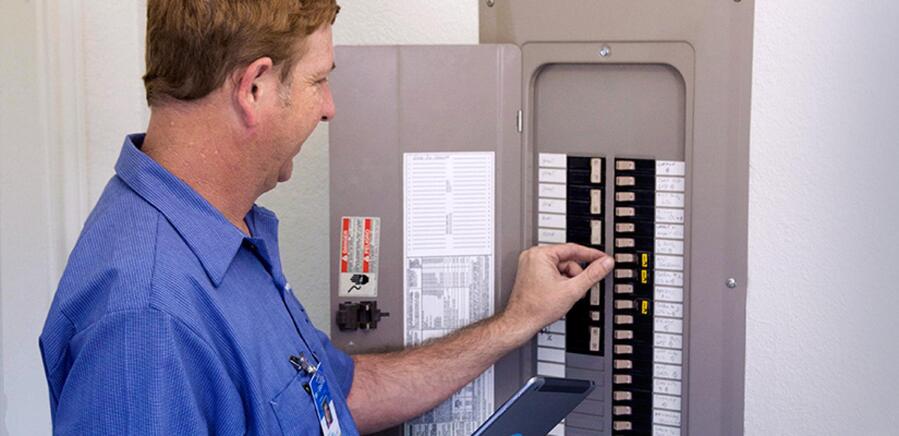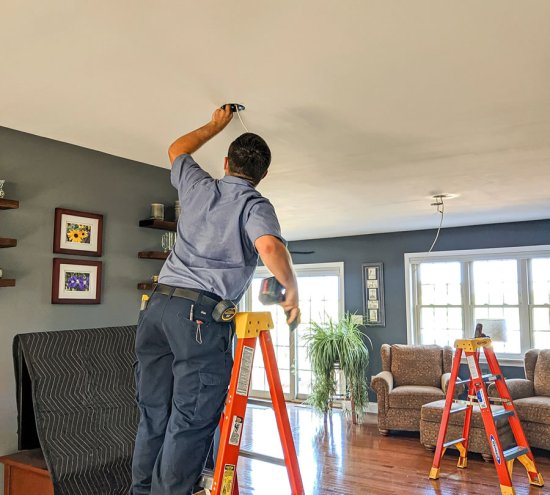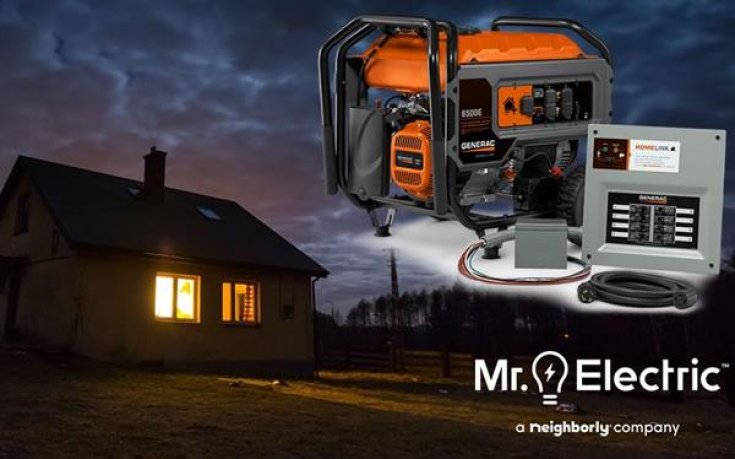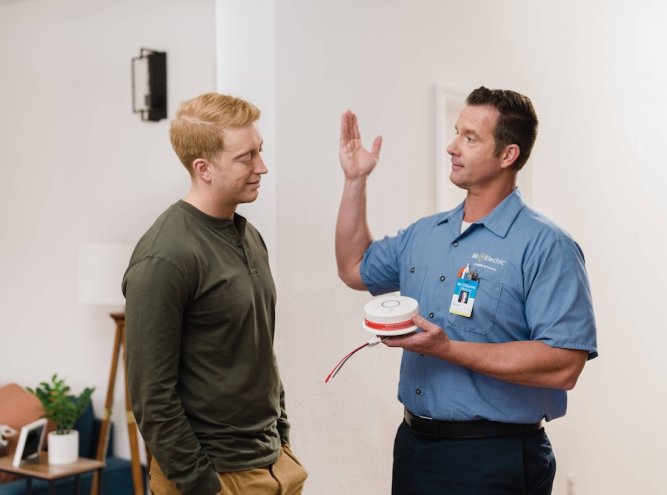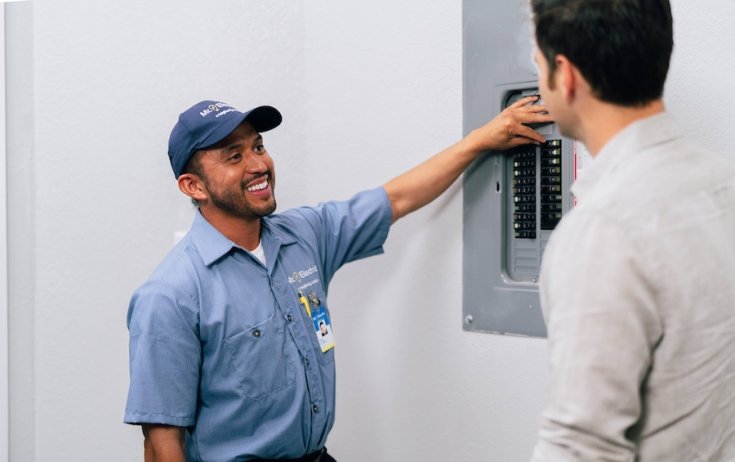Have you experienced one of those frustrating times when the power unexpectedly goes out or your favorite show stops playing, leaving you with no choice but to turn off all the lights? That can be quite a shock, right? Perhaps this is due to your circuit breaker repeatedly tripping. Mr. Electric explores why and what can be done about this situation including circuit breaker replacement.
What Is a Circuit Breaker?
A circuit breaker is an essential element in your home's electrical system that safeguards you and your family by turning off electricity when there's a potential safety concern—like guards preventing electricity from going where it shouldn't, such as fire hazards and other potential emergencies.
Reasons For Breaker Trippage (Tripped Breakers)
Overloaded Circuit
One of the primary causes of circuit overload is having too many devices or appliances connected to one circuit at the same time, drawing more power than it can sustain. Imagine trying to carry all your groceries at once: It could become too heavy, and something may fall. Something similar applies to electrical circuit overload.
Short Circuit
A short circuit occurs when electricity flows rapidly between hot wires (carrying power) and neutral wires (returning electricity), creating an inrush of current through pathways with little resistance. This produces heat that could potentially result in fire; your circuit breaker then promptly trips to stop this situation from unfolding further.
Ground Fault
Like short-circuiting, ground faulting occurs when a hot wire contacts either the ground wire or the metal outlet box side.
Faulty Appliances
Sometimes, the issue lies within one or more appliances you use instead. A malfunctioning item might draw too much current or cause short-circuiting, which trips the breaker, causing its circuit breakers to trip and trip accordingly.
What To Do If Your Breaker Keeps Tripping
Unplug Devices
When your breaker keeps tripping, begin by unplugging certain devices connected to a circuit that seems overloaded. If the issue still remains after resetting it, try moving devices across various circuits to better balance the load and distribute your devices evenly across them all.
Look Out for Short Circuits
Be on the lookout for signs of a short circuit, like a burning smell, scorch marks around outlets or buzzing noises. If this occurs, it's best to contact an electrician immediately since these issues can become potentially dangerous quickly.
Inspection Your Appliances
Has the breaker for an appliance suddenly been tripping when using specific pieces of hardware, making use of said product challenging? Consider switching outlets/circuits; if issues still remain, stop using them and consider getting them repaired/replaced as soon as possible.
When To Call a Professional
While minor problems may be easily remedied on their own, sometimes professional assistance should be sought out for larger ones. Here are a few scenarios when calling an electrician may be necessary:
Frequent Tripping
Suppose your circuit breaker keeps tripping despite evenly spreading your electrical load. In that case, it may be wise to consult an electrician, as there may be an underlying issue that needs professional intervention.
Old Electrical Panels
Older homes frequently contain outdated electrical panels that cannot meet the power needs of modern appliances, necessitating an upgrade or repair to ensure safety and code compliance for residents. You might require electrical panel repair or even circuit breaker replacement in Columbine to bring your home up to code with current regulations and uphold safety.
Visible Damage
If you detect visible damage to your wiring, outlets, or electrical panel, don't wait! Contact an electrical repair service immediately, as this could indicate an imminent threat that could potentially result in fire.
Electrical Upgrades
When adding new appliances or remodeling your home, upgrading its electrical system might be necessary to meet increased power demand safely. An electrician can assess your current setup and suggest any necessary upgrades such as panel repair or circuit breaker replacement as part of an upgrade strategy.
Prevention Steps
In order to keep your circuit breaker from tripping repeatedly, here are a few measures you can take:
Spread Out Your Devices
Avoid overstuffing one circuit with too many high-power devices by spreading them out across several outlets and circuits to balance their load and ensure efficient performance.
Upgrade Your Electrical System
If your home's electrical system is old, consider updating it. Modern systems are built to more effectively accommodate today's increased electricity demands.
Regular Maintenance
Have your electrical system regularly inspected by a trained electrician to identify potential issues before they escalate into bigger headaches. Maintenance tasks might include checking for loose wires and outlets that are not properly grounded and making sure your panel remains undamaged.
Use Surge Protectors
Surge protectors can help protect against power surges that might trip a circuit breaker and devices against sudden spikes of electricity, protecting both them from potential harm and your devices from sudden surges of electricity.
Mr. Electric
Although constantly dealing with a tripping breaker may be frustrating, remember it serves an essential function—protecting you. By understanding why breakers trip and taking steps to prevent them from happening again, you can ensure the electrical system in your home continues running safely and smoothly. If in doubt, don't hesitate to seek professional assistance from Mr. Electric.



